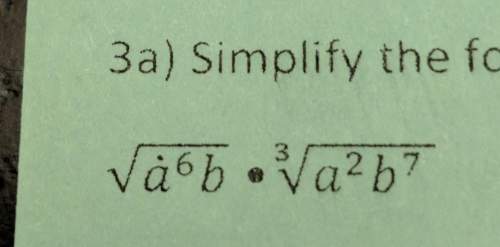
Mathematics, 13.07.2019 03:30 natalee24
Find an explicit solution (solved for y) of the given initial-value problem in terms of an integral function. dy/dx + 3y = e^x^5, y(2) = 5.

Answers: 1


Another question on Mathematics


Mathematics, 21.06.2019 15:20
Which is the equation of an ellipse with directrices at x = ±4 and foci at (2, 0) and (−2, 0)?
Answers: 3

Mathematics, 21.06.2019 19:10
Do more republicans (group a) than democrats (group b) favor a bill to make it easier for someone to own a firearm? two hundred republicans and two hundred democrats were asked if they favored a bill that made it easier for someone to own a firearm. how would we write the alternative hypothesis?
Answers: 1

Mathematics, 21.06.2019 20:00
Ke’ajah has a coupon for 1/3 off the regular price, t, of a tent. which expression represents the price of the tent using the coupon? select the two correct expressions. a. 1/3t b. 2/3t c. t - 1/3 d. t - 2/3 e. t - 1/3t f. t - 2/3t
Answers: 1
You know the right answer?
Find an explicit solution (solved for y) of the given initial-value problem in terms of an integral...
Questions








English, 20.12.2019 21:31

English, 20.12.2019 21:31

History, 20.12.2019 21:31


Mathematics, 20.12.2019 21:31



History, 20.12.2019 21:31








![\frac{1}{e^{3x}}[\int {e^{5x}} \, dx+c]](/tpl/images/0083/3113/f4c6a.png)






